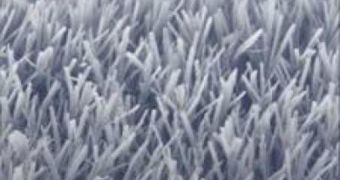Scientists at the Tel Aviv University (TAU), in Israel, announce the development of nanoscale peptide assemblies, which hold great promise for creating a new class of coatings. They could be used for solar panels, or for windows, and could endow these structures with the ability to clean themselves, and always retain their efficiency and transparency, respectively. According to details of the breakthrough, published in the latest issue of the respected scientific journal Nature Nanotechnology, the futuristic technology could become available for mass use in just a few years.
The new work was conducted by TAU Department of Molecular Microbiology and Biotechnology Professor Ehud Gazit and his graduate student, Lihi Adler-Abramovich. The two managed to make the assemblies work at incredibly small sizes, of several billionths of a meter. Most of the peptide structures are roughly 100 nanometers in diameter, but a large part of them is even smaller than that. What the team did was basically develop a method of making the atoms and molecules in peptides grow in an orderly fashion, in the basic shape that grass has.
The thing about these peptide “forests” is that they are extremely well suited to repel dust and water, thus providing the foundation for self-cleaning coatings. “This is beautiful and protean research. It began as an attempt to find a new cure for Alzheimer's disease. To our surprise, it also had implications for electric cars, solar energy and construction,” Adler-Abramovich, who is also a PhD candidate at TAU, explains.
“We are not manufacturing the actual material but developing a basic-science technology that could lead to self-cleaning windows and more efficient energy storage devices in just a few years. As scientists, we focus on pure research. Thanks to Prof. Gazit's work on beta amyloid proteins, we were able to develop a technique that enables short peptides to 'self-assemble,' forming an entirely new kind of coating which is also a super-capacitor,” the expert adds. He reveals that the new material has the ability to boost the efficiency of capacitors as well. This could lead to significant advancements that could impact even electric-car production processes.
“Our technology may lead to a storage material with a high density. This is important when you need to generate a lot of energy in a short period of time. It could also be incorporated into today's lithium batteries,” Adler-Abramovich concludes.

 14 DAY TRIAL //
14 DAY TRIAL //